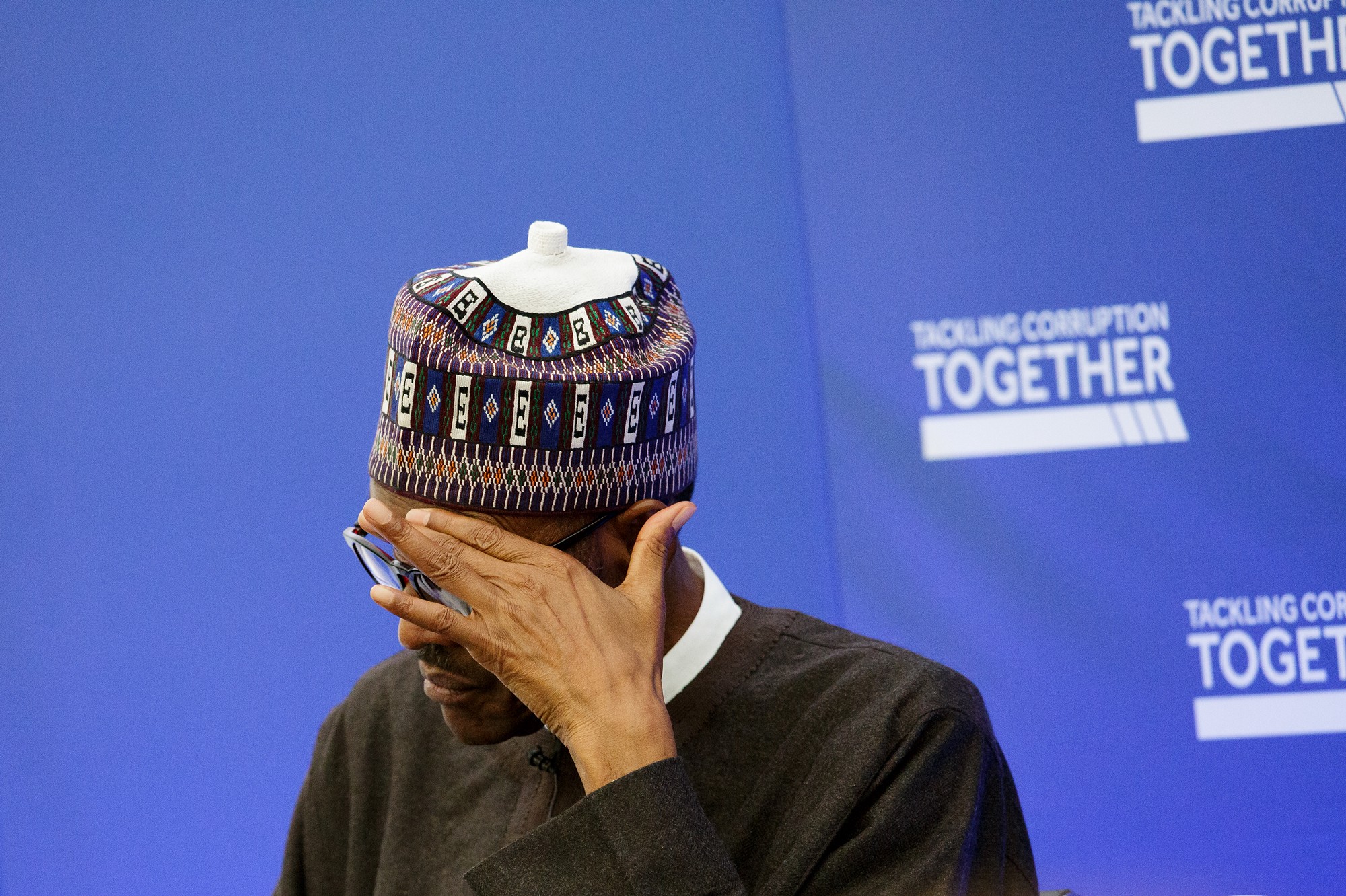Last month, the Oyo governor, Abiola Ajimobi shocked the nation.
Footage of the governor speaking to students of the Ladoke Akintola University of Technology (LAUTECH) who had been grounded at home (for eight months from 13 June, 2016 due to a shutdown announced by the Rector), showed a white-hot rage: “If this how you want to talk to me,” he blasted the students for their effrontery in protesting the closure of their school. “Then do your worst. Eight months. Eight months? Is that something we have not seen before?”
Even now retelling the statements, I am shaken.
Let’s stop there and unpack the statement and its many ugly layers: you will find arrogance, you will find insensitivity, and you will find a distinct lack of compassion (if we wanted to get right to the point, we would call it wickedness).
Advertisement
Let’s ask a common sense question: How does a public servant defend a failure of duty based on how he or she is spoken to?
And then let us recall what exactly the issue is here.
LAUTECH is owned by the Oyo and Osun state governments. The two state governments are to each give the schools N295 million as subventions monthly. Oyo owes the institution N2.3 billion and Osun owes N5.3 billion. With this dereliction of responsibility, naturally, teachers in the school have been owed for 13 months. So five months ago, workers went on strike, and the school was shut down.
Advertisement
I know our country has degenerated so badly that the unacceptable has found its place into mainstream tolerance. But it is important to understand this: having students of a university sit at home for eight months is certainly, to put it mildly, not normal.
It should never be acceptable for students to have disruptions to their academic schedule. It sends to them, a clear message – that their country does not care about them. It fundamentally alters any pretentions to structure and order, and the reality of governance.
It costs the nation significantly because we spend more per student in multiple ways when sessions are interrupted – depreciation costs, inflationary consequences, loss of manpower hours as employees are paid for periods of low value (and still have to retire at age limit), double costs with each resumption, cost of maintaining the school at gap periods (including electricity and water bills). Remember that none of these costs are value-driven because they are incurred when the primary reason for the institution’s existence is absent.
Then there is the unbearable cost to the students, and then to the guardians of the students – all of the above doing their part to sustain a vicious cycle of national waste.
Advertisement
It bears repeating, however, that its most important damage is that it else sends a message to young people finding their way in the world that this is a fundamentally messed up country, where hard work isn’t rewarded, patriotism isn’t logical and the system eats its young alive.
It is important to restate this, even if tertiary school shutdowns have become a tradition since the Academic Staff Union of Universities organized its first national strike in 1988 and military dictators, who ruled Nigeria for a better part of the 80s and 90s, decided that wanton school closures are the solution to student dissent.
It is important to restate this for the sake of my own sanity even if I have been a victim of the most ridiculous shutdowns as a student of the University of Lagos in 2005.
Because things have now deteriorated so badly, that an elected governor can stand at a podium – after eight months of institutional silence as these students have begged and pleaded for audience – unafraid of consequence, to tell them, essentially, to go to hell.
Advertisement
This is not normal.
In response, rather than apologise, or pretend to contrition, his team decided that a more effective strategy was to share its own edits of the exchange, claiming that the governor ‘apologised’ to the students.
Advertisement
First, in the apology video, he did no such thing. “I am not angry,” was the best he said, and from a place of entitled smugness.
The fact that this public servant even thought the full video of his patronizing statements would make any part of the exchange acceptable is proof further than the events in themselves that the man’s style of governance is also… not normal.
Advertisement
“Students need to learn to engage,” he lectured them after failing them for 13 months. Makes one wonder, isn’t it the job of the leader who is also servant to first engage, to explain, to establish a frame of understanding, and to empathise?
How do you expect calm and restraint from young people whose progress has been cut short for eight months? Is it possible that this man would be restrained and orderly if his children were stuck so?
Advertisement
It bears asking if there is an understanding of the basic nature of service.
Because beyond the evident failure of governance that his action shows, there is an absence in understanding the massive failure in the value chain. He doesn’t know that he has failed, and so he doesn’t know that he should be ashamed, be sorry about it, and be apologetic.
That should shock us. Not because we didn’t know how these guys have always viewed the rest of us; not because we didn’t know the primitiveness that undergirds the thinking of our leadership set, but because, now, they have killed shame.
There is that.
But perhaps we should ask ourselves – how did the governor come about this misguided confidence?
He explained it in the video: constituted authority.
According to him, the fact that he is “constituted authority” means the students should have kept shut, listened to him, and accepted his justifications uncritically.
He fully expected that his sheer presence of his superfluous ‘agbada’ was such a gift to the students that they should have been stunned into ecstatic silence.
And so “His Excellency” was shocked – shocked – that the young, educated people of his state, who were agitated after eight months of abandonment, could still find their voice.
Now, that, right there, is where we should get frightened.
That an elected leader – and there are many like him – still believe, even in a flourishing, adversarial two-party democracy, that they are constituted authority against which questions are disrespect, and questioners risk punishment.
Right there, stands the root of our particular brand of problem.
The respect, and, yes, the fear that leaders should have for citizens is mostly absent in the version of a social contract that Nigeria has.
Unfortunately, the fault for this anomaly doesn’t come only from those who lead.
Today, we have citizens who have ceded their right to be treated with respect. You only need to pay attention to conversation online to see a citizenry that has not only ceded that right, but actively denigrates those who would exercise theirs. People who believe that political affiliation means blind loyalty. Those who believe that relationships with government mean silence whatever happens. Those who believe that those who make high demands of government are being ‘troublesome’ or ‘unreasonable.
But if citizens want respect from their leaders, they have to demand it – and they have to demand it without reservation.
The defense of “constituted authority” is jabber. There should be no respect for leaders who have defaulted in duty.
There should particularly be no regard for Nigeria’s distinguished set of consistently, and aggressively, failing leaders.
Many of our leaders lack empathy. The steady erosion of incentives for demonstrable empathy and consequences for its lack has ultimately led to this death, of common sense. And so they have become, in essence, abnormal.
In that case, it becomes imperative to turn up the heat.
People should not be afraid of their governments. Governments should be afraid of their people.
Governments should be worried about how the public receives their decisions and interprets their actions. Government activity would thence be made only against the background of what citizens thinks, what the voters’ reaction will be, of the consequences of each step.
Even if it leads to pandering – that is only a small price to pay for the bigger gain that comes.
But it has to matter that the decision of those we have chosen to lead us must reflect our desires, our wishes, our imperatives and our preferences – and that their reactions must reflect an understanding of who truly calls the shots.
That is how a functioning democracy works. Unfortunately, Nigeria is a long way from this balance of power.
These guys in public office, and their band that lose perceptive when they get a job in government, don’t get it.
They don’t get it, at all.
Our urgent, continuous task is to make sure that they do.
PS: Upon going to press with this piece, it is important to remember that while LAUTECH has technically re-opened, students have yet to continue academic activity because lecturers have not yet resumed. So, indeed, the value chain remains broken.
Jideonwo is co-founder and managing partner of RED (www.redafrica.xyz), which brands including Y!/YNaija.com and governance communication firm, StateCraft Inc. Office of the Citizen (OOTC) is his latest essay series.
Views expressed by contributors are strictly personal and not of TheCable.
Add a comment







